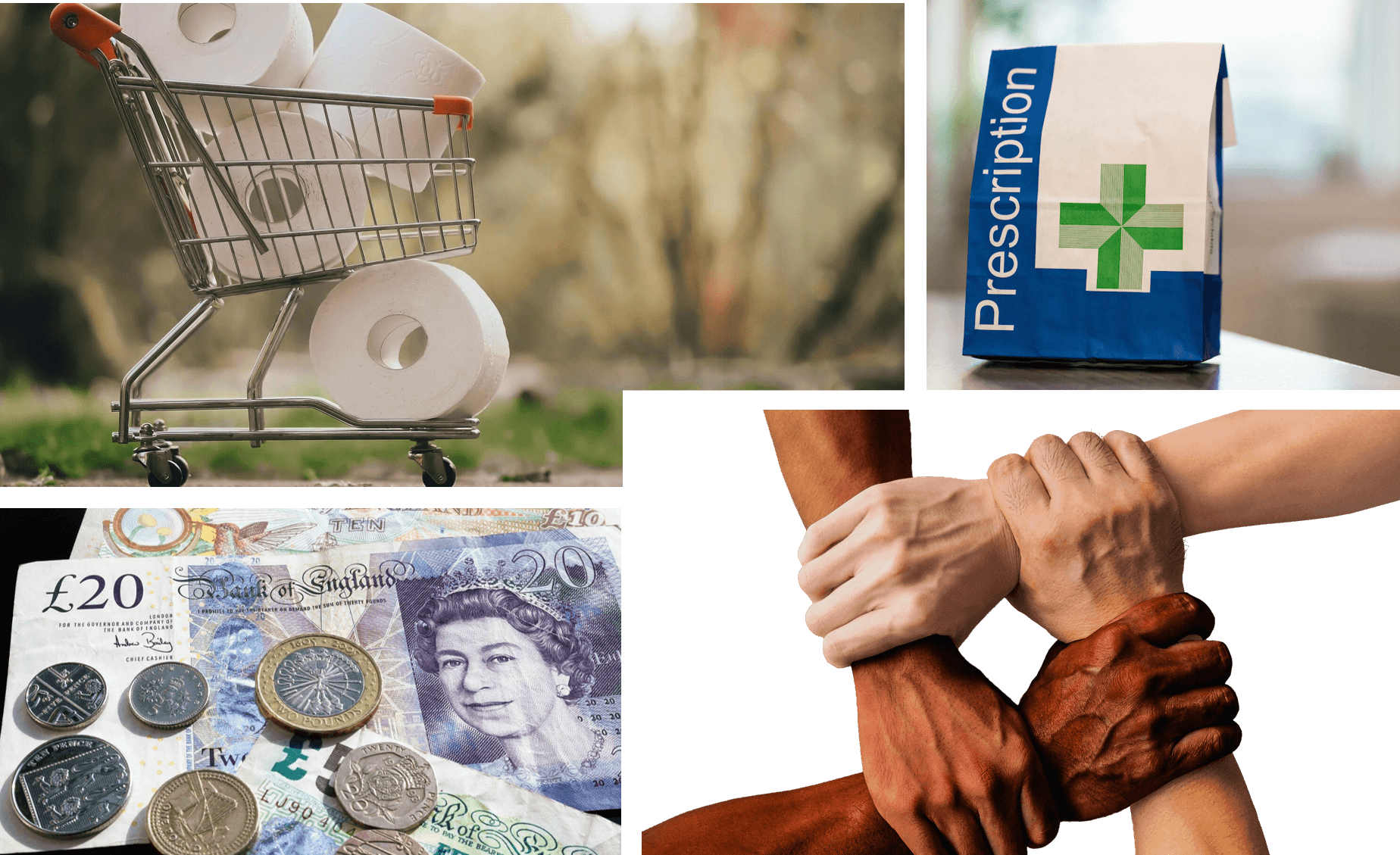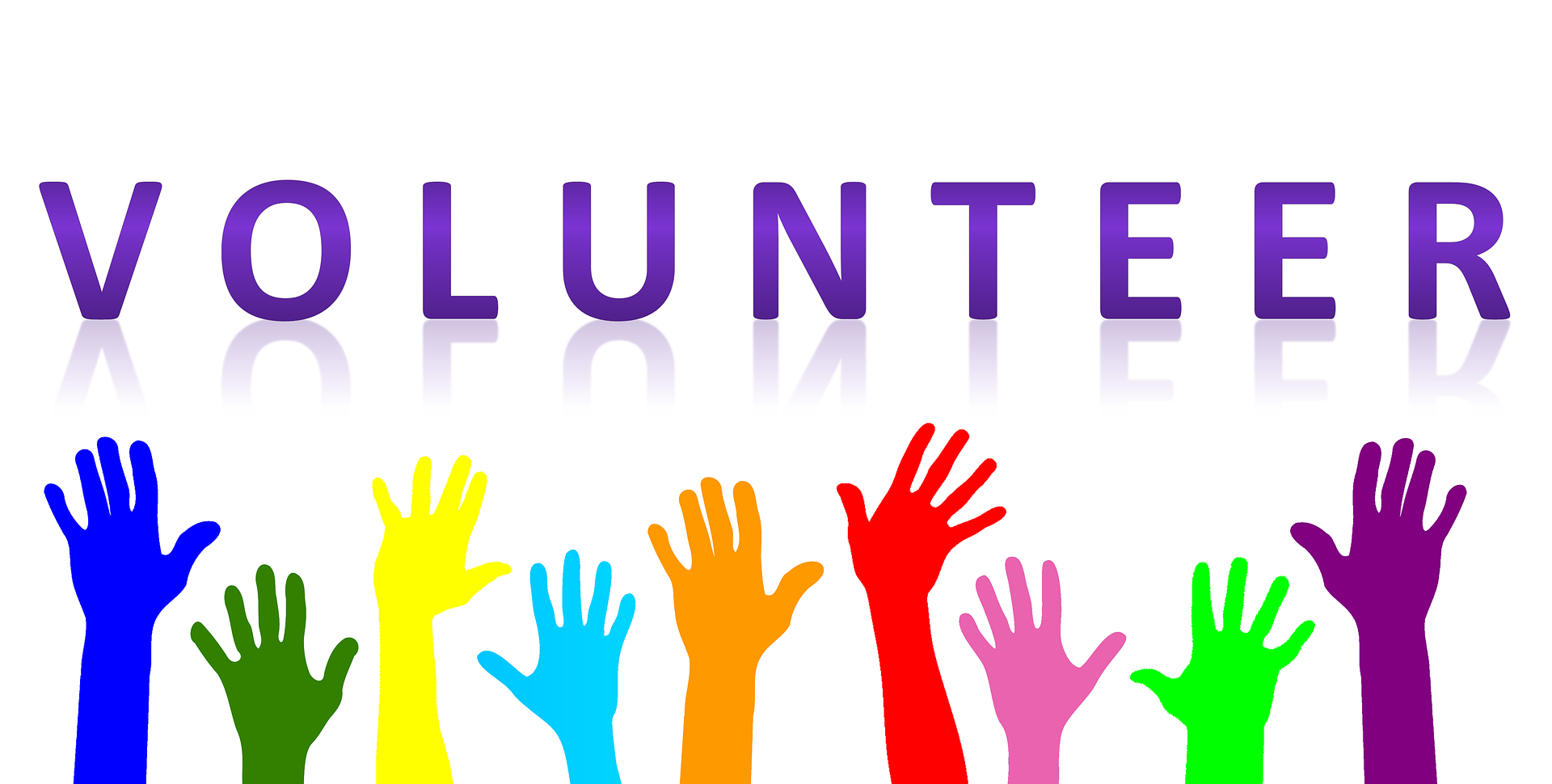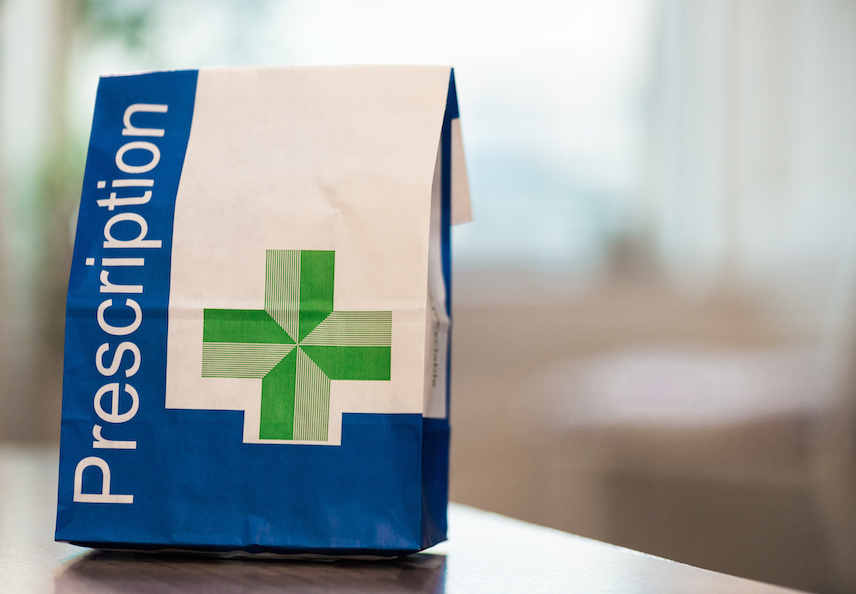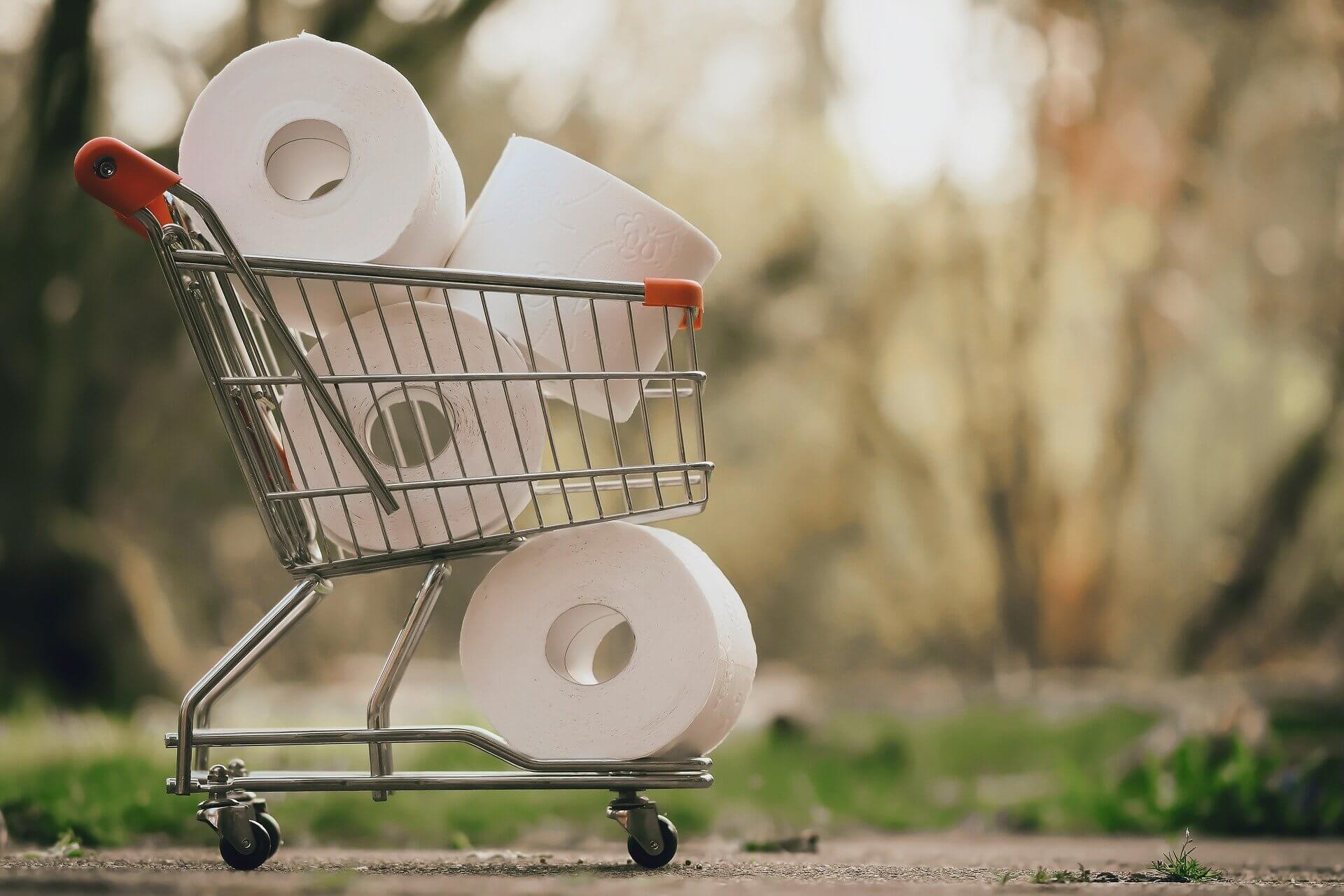Support for shopping, medication and other essentials

Whether shielding as an extremely vulnerable person or staying at home as a vulnerable person you may need help with day-to-day activities that would normally require you to leave your home.
What support networks are there to help people who are "shielding" (self-isolating due to extreme vulnerability)

If you are registered as extremely vulnerable, you will receive a call from the National Shielding Helpline. They will ask you if you need immediate need of food or other support. They should put you in touch with your local council or other groups that can help. You may also receive a call from your own council asking the same questions and looking to help you.
Organisations that can help are:
- Local councils
- Voluntary groups
- Local and neighbourhood groups
Local councils
Your first stop in trying to get help with shopping, prescriptions and other essential help should be your council. They can provide emergency food and essentials for free as well as putting you in touch with support teams.
Your local council should be able to provide you with local updates and information on their community schemes. This can be found on their websites, Facebook and Twitter accounts. To find your local council and all their information please click HERE.
Selected Council Run support sites
- Croydon coronavirus support
- Hounslow community hub
- Kingston Coronavirus Support
- Merton Community Support Hub
- Surrey County Council Coronavirus community support for extremely vulnerable people
- Sutton Council hub
- Wandsworh and Richmond Community Hub
- West Sussex Council hub
Voluntary Groups
Royal Voluntary Service
The Royal Voluntary is running the government scheme that drew over 750,000 volunteers from across the UK. The NHS Volunteer Responder is being asked to help with several areas of support. Details can be found here: https://volunteering.royalvoluntaryservice.org.uk/nhs-volunteer-responders-portal/volunteers
Community response volunteers are there to help support those extremely vulnerable people "shielding" themselves at home. They will be in contact with these people either via the National Shielding Helpline or by health or social welfare professionals. Here is the link for referral by a professional. https://volunteering.royalvoluntaryservice.org.uk/nhs-volunteer-responders-portal/referral
Age UK
Age UK supports those over pensionable age and other vulnerable people through a network of volunteers. You can get in touch with your local branch here:
Age UK Advice Line 0800 055 6112 Free to call 8am – 7pm 365 days a year
Find out more
The British Red Cross
The British Red Cross is another volunteer staffed organisation with a his of supporting patients of the NHS.
To apply for help visit:
https://www.redcross.org.uk/get-help/get-support-at-home
Local and Neighbouhood Groups
During this crisis altruism has been evident throughout. There have been thousands of local acts of kindness and neighbourhood groups set up to help people.
The COVID-19 Mutual Aid UK website helps you find groups in your local area.
Covid-19 Mutual Aid UK are a group of volunteers aiming to support the network of local community groups organising to support people through the coronavirus pandemic. They are not in charge of this network and have no say over what local groups do. They exist merely to provide resources that will help them flourish.
My medication is running low. What should I do to get a repeat prescription?

Did you know you can order repeat prescriptions online, without needing to go to a GP surgery or pharmacy? You can also ask your pharmacy about getting your medicine delivered to your home, rather than needing to collect it.
You can order repeat prescriptions using:
The NHS App also allows you to set and change which pharmacy your prescription is sent to.
You can pick one near where you live or choose one that will deliver your medicine to help cut down on travel while staying at home.Volunteers are being asked to help deliver prescriptions from local pharmacies as part of the NHS's Volunteer Responder programme.
For your transplant (immunosuppression) medication, you should keep a buffer of 1 months medication. If you receive you medication through the home delivery service of Alcura contact them (if they have not all ready called you). They will provide 4 months supply. If you collect yours from the hospital pharmacy, call the Renal Transplant Clinic and ask to discuss your options.
What should I do about getting an online shopping delivery slots?

The government has given local councils the money and responsibility to look after the most vulnerable in their area. If you or someone you know is struggling to feed themselves, you can contact them and they will send a food box of essential items. Further details can be found in the section on support networks. If you need a food bank’s help because you have no money for food, please contact your local food bank. You can find Trussel Trust's contact details by clicking HERE and then putting your postcode into the food bank finder map provided.
If you need a food delivery you have 4 main options:
- Ask a friend, relative or neighbour to do the shopping for you. Make sure they observe the government guidance on hand hygiene, safe distancing and . Unless
- Arrange with a support network for one of their volunteers to do your shopping. They will probably ask you to phone the shop to pay over the phone with a card.
- Speak with a local shop, especially one that you are already a customer of. We have found that small businesses are changing the way they work and are organising their own deliveries.
- For the the more tech-savvy, you can use an online delivery service.
The major supermarkets have been overwhelmed by the demand for their delivery and "click and collect" services. For those that offer these services they are trying to increase their capacity and have agreed with the government to reserve "delivery slots" for those people who are registered with the government as "extremely vulnerable". It is therefore crucial that If you are eligible, ensure that you register at: www.gov.uk/coronavirus-extremely-vulnerable or calling 0800 0288327.
According to one supermarket we approach, they will begin approaching existing customer who are on the government's "COVID at Risk" register. This should begin the week after Easter for existing customers of the supermarket.
In addition, most supermarkets offer specific times that vulnerable people can visit their shops. See below for details.
Asda
Iceland foods
M&S
Sainsbury’s
Tesco
Waitrose
Aldi
Lidl
Alternatives to supermarkets
If you’re struggling to secure an online delivery slot, you could check alternatives to supermarkets such as local independent shops, farm shops, community shops and wholesalers. Some are launching delivery services for locals.
Try asking community groups if they know of any or check these websites: localfooddrops.co.uk and wedeliverlocal.co.uk.
Food boxes are available, free of charge, for extremely vulnerable people who cannot otherwise get food via local councils and the government page for getting coronavirus support as an extremely vulnerable person or call 0800 028 8327
Getting hold of cash to pay people

The safest way to pay is by card online or over the phone. Shops are are agreeing to do this for food (but check in advance by calling them. If you can't use cards or another form of digital payment then you can ask your bank to set up a Trusted Third-Party Mandate. This allows a trusted friend or relative access to your bank account to make cash withdrawals and payments on your behalf. The consumer organisation, Which, has written a guide to help with banking services during the crisis including the benefits and pitfalls of a Trusted Third-Party Mandate.
The other way to get cash without leaving your home is a service run by the post office. Called Ask-a-Friend, the service is run by the Post Office. If the bank allows it, someone can ask for a one-time barcode sent via text, email or post for a stipulated amount. A trusted friend or volunteer can exchange the voucher for the requested cash.

